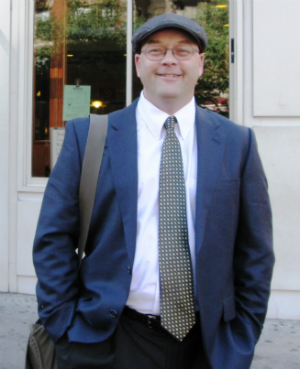What position do you hold at OISC? What has been your career path so far?

Neil: I am currently a Tutor for OISC and have been for the last 12 months. I teach primarily History but also Study Skills, Current Affairs, Politics, and I help prepare students for their university entrance exams. Prior to joining OISC I worked as an Academic Advisor to student-athletes in the United States of America. In that capacity, I developed and managed tutoring programmes at two prominent State universities. I also studied for my Masters Degree and PhD while in the United States. In addition, I write books and articles, and have had two books published in the last 18 months. My next book comes out in Spring 2015.
Did YOU study abroad?! If so, where and what inspired you to go?
Neil: I studied for my Masters Degree and PhD in US History at the University of Georgia. I was inspired to study the American Civil War when I saw a Ken Burns’ documentary, and I was subsequently advised to study the war in a southern university. I also feel strongly that to study another country’s history, the student should try to gain a feel for that country’s culture and how those people perceive themselves. I think the more immersive the experience, the better it is for the student. I was also extremely fortunate to work with excellent professors in my chosen field, particularly Robert E. Lee’s biographer Emory Thomas, Civil Rights expert Robert Pratt, and the prominent southern historian Jim Cobb.
What about the future of the industry? How do you think study abroad and international education will change over the next 10 years?
Neil: I think it is vitally important that cross-cultural education is strengthened in the next decade. Such an exchange ties communities together and generates greater understanding. Moreover, in a world where borders still have meaning, cross-cultural understanding can maintain or increase frontier flexibility and in a small way prevent conflict. In the next few years, in this shrinking world, more students will have access to higher standards of education through technological exchange through online learning, but that will never fully take the place of becoming part of a foreign culture if even only for a short while. Moreover, not only does the student benefit, but the receiving culture also gains from such visits.
What do you believe to be the biggest factor in being a successful company? What unique qualities does your company possess?
Neil: The most significant element in successful companies should be, and often is, how they deal with their customers. The company should respect its customers and attempt to understand and anticipate their needs. I am fortunate that at OISC, I work for and with a dedicated team of professionals whose collective primary interest is to provide an exceptional educational and cultural experience for international students. Our staff is genuinely interested in the welfare of the student and always goes the extra yard to provide the best teaching available as well as a comforting and secure environment in which to learn.